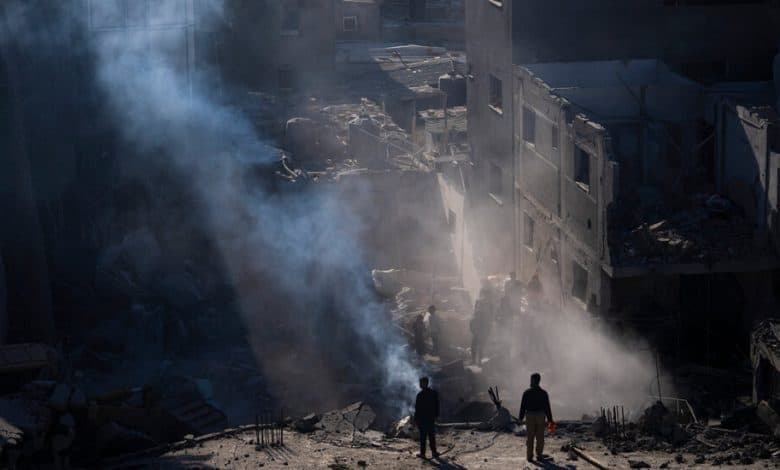A U.S. Call for a Humanitarian Cease-Fire in Gaza

Vetoing a United Nations Security Council resolution calling for an immediate cease-fire in Gaza while circulating a softer hostages-for-cease-fire resolution of its own may have been the best of the bad options available to the Biden administration. President Biden is right to take this step. Given the scale of death and destruction in Gaza, and the prospect of more to come, he can take other measures as well that might lessen Palestinians’ suffering and loss of life.
The issue is not whether Israel was justified in going after Hamas after the terrorist attack of Oct. 7. It was, and it has achieved some of its military aims. It has destroyed significant parts of Hamas’s military infrastructure and reduced its fighting force. Hamas reportedly says it has lost about 6,000 of an estimated 25,000 fighters; Israel says it has killed more than 10,000 of them.
But this war, on its current course, is leading to the wholesale killing of Palestinians while Hamas gains in international standing and the remaining Israeli hostages remain captive. The United States, as Israel’s most important ally and source of military aid, should take the lead in changing that.
The president was right to demonstrate sympathy and support for Israel in the days after the Oct. 7 attack. Since then, his administration has worked tirelessly with Arab allies, first mediating a brief halt in fighting in November and more recently trying to negotiate a longer cease-fire to release the Israeli hostages and to bring humanitarian relief to Gaza.
Hamas launched its attack to provoke an Israeli response, knowing that the people of Gaza would be acutely vulnerable. The terrorist group hides its fighters among civilians, and built its infrastructure, including miles of tunnels, underneath homes, schools and hospitals.
Since the war began, the two million people who live in Gaza have been pounded by Israeli bombardment. More than 29,000 people have been killed, according to Palestinian figures; more than half of Gaza’s homes and buildings have been destroyed, and the United Nations has raised the alarm that, cut off from supplies of food, Gazans are at risk of starvation. The death toll could soon rise sharply if Israel carries out a ground invasion of Rafah, a city in the far south of Gaza, where the military believes 10,000 Hamas fighters remain, and to which a million civilians have fled.
